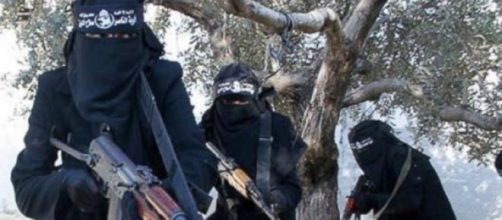As the world fought (and continues to fight) for the equality and opportunity for women across the globe, the flight of westernised and educated women, into the blood-soaked and oppressive clutches of ISIS begets questions, shock and disbelief. The idea that women would willingly abandon their freedom of movement, thought, speech and personhood to become a part of a grossly misogynist system, which leashes them of their basic rights by the very virtue of their gender identity, is incomprehensible to many. Following the three British girls who fled to Syria to join ISIS, the overwhelming question on everyone's minds is ''Why?''
The process of political and religious radicalisation is a complex one, and in the case of ISIS, the political as well as religious radicalisation, play an equally important role.
There is no reason to believe that women may join radical movements for different reasons to men. Although they understand that their roles will be very different, the religious and political ideology, coupled with gross sense of self-righteousness and moral superiority, may and does cause women to sympathise and join such a cause. Installing these very ideas in the minds of women is a bridge to radicalisation.
The Islamic State presents itself as a Caliphate, a 'Muslim Utopia' that shields the 'true believers' from the evils of 'western decadence' and 'moral degradation'. It enforces the idea that they are superior in their ways, as their ways are those of God, and thus the luxuries of Westernism are false, dissolute and repugnant.
ISIS recruiters, thus, aim to get these women to disassociate themselves from the life and the ideas they were brought up in, and embrace this other culturally and religiously superior structure. This is the essence of religious and political radicalisation: rapid disassociation with ''their wicked ways'' and an internalisation of ''our righteousness".
An unknown Russian General, when speaking about Chechnyan mujahedeen has been credited with saying: "How do you defeat an enemy who looks into the barrel of a gun and sees paradise?". This impeccably illustrates that the other war ISIS is waging, is the one of ideology (be it political or religious), and that such war won't be won by military force.
That a war is further aided by ostracisation and segregation (either willing or imposed) of the Muslim youth in other countries.
Still, willingly accepting a subordinate status that is based on nothing more than gender, is a confounding concept. The fact that much of such decision is influenced by strong religious overtones makes radicalisation that much more intense, and that much stronger. Women run to ISIS knowing that activities, such as walking down the street without a 'mahram' (chaperon), are over, and that aspiring to anything other than staying at home, producing children and caring for a husband, whose purpose is to wage war until he dies, or achieves victory, is nonetheless shocking from any other perspective.
It is so further, because to willingly submit to such, is to condone the gruesome acts of violence and savagery ISIS perpetrates on those it deems its enemies.
Women, like men, especially those form the West, run to ISIS due to a displaced sense of belonging, propelled by religious ideas and further aided by misguided sense of superiority. These convictions are in themselves extremely strong for those women in the West to give up their status, living standard and freedom in order to aid a violent and vicious organisation in a war-torn country.
What is for certain at the moment, is that the reasons for their departure to Syria may be to some extent known, but whether or not there's ever a regret or willingness to return, it will never be known.

